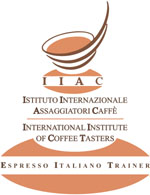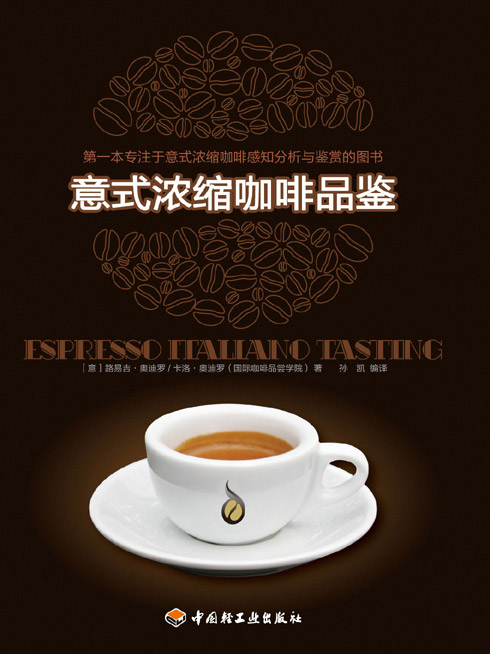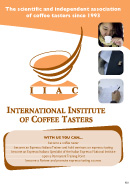Italian Espresso certification programme and certification for Espresso Italiano Trainers in October 2014
 New certification sessions for Italian Espresso and for Espresso Italiano Trainers will take place in Brescia (Italy) from the 27th to the 30th October 2014, just after the international exhibition Triestespresso.
New certification sessions for Italian Espresso and for Espresso Italiano Trainers will take place in Brescia (Italy) from the 27th to the 30th October 2014, just after the international exhibition Triestespresso.
The Italian Espresso certification programme is run by the Italian Espresso National Institute (Inei) in cooperation with the International Institute of Coffee Tasters (Iiac). It is made up of two modules (M1 Espresso Italiano Tasting and M2 Espresso Italiano Specialist). The two courses will take place on the 27th and 28th October and are valid for the Inei’s certification Italian Espresso.
The certification programme for Espresso Italiano Trainers will immediately follow on the 29th and 30th October. Candidate trainers have to attend two more modules (M3 Senses Brain Sensory Analysis and EIT Espresso Italiano Trainer course). Certified trainers will be entitled to hold the sensory seminar Espresso Italiano Experience on behalf of the Iiac. The content of the seminar includes information on espresso and tasting techniques with the final aim of teaching the students how to assess the quality of Italian coffee. Each student receives a certificate after passing the thoery and tasting exams at the end of the seminar. There are more than 100 Espresso Italiano Trainers in the world.
For more information, please download the PDF or write to carlo.odello@italiantasters.com.


 In 2007 the International Institute of Coffee Tasters (Iiac) celebrates its 15th anniversary. Its results are flattering: more than 5.000 registered members from all five continents, more than 500 ‘didactic’ events in most European countries – but also Japan and South America – a book on coffee tasting methods which has been translated into English, French, German, Spanish, Portuguese and Russian – and will be soon translated into Japanese and Korean, tens of tasting sessions and at least as many conferences.
In 2007 the International Institute of Coffee Tasters (Iiac) celebrates its 15th anniversary. Its results are flattering: more than 5.000 registered members from all five continents, more than 500 ‘didactic’ events in most European countries – but also Japan and South America – a book on coffee tasting methods which has been translated into English, French, German, Spanish, Portuguese and Russian – and will be soon translated into Japanese and Korean, tens of tasting sessions and at least as many conferences.
